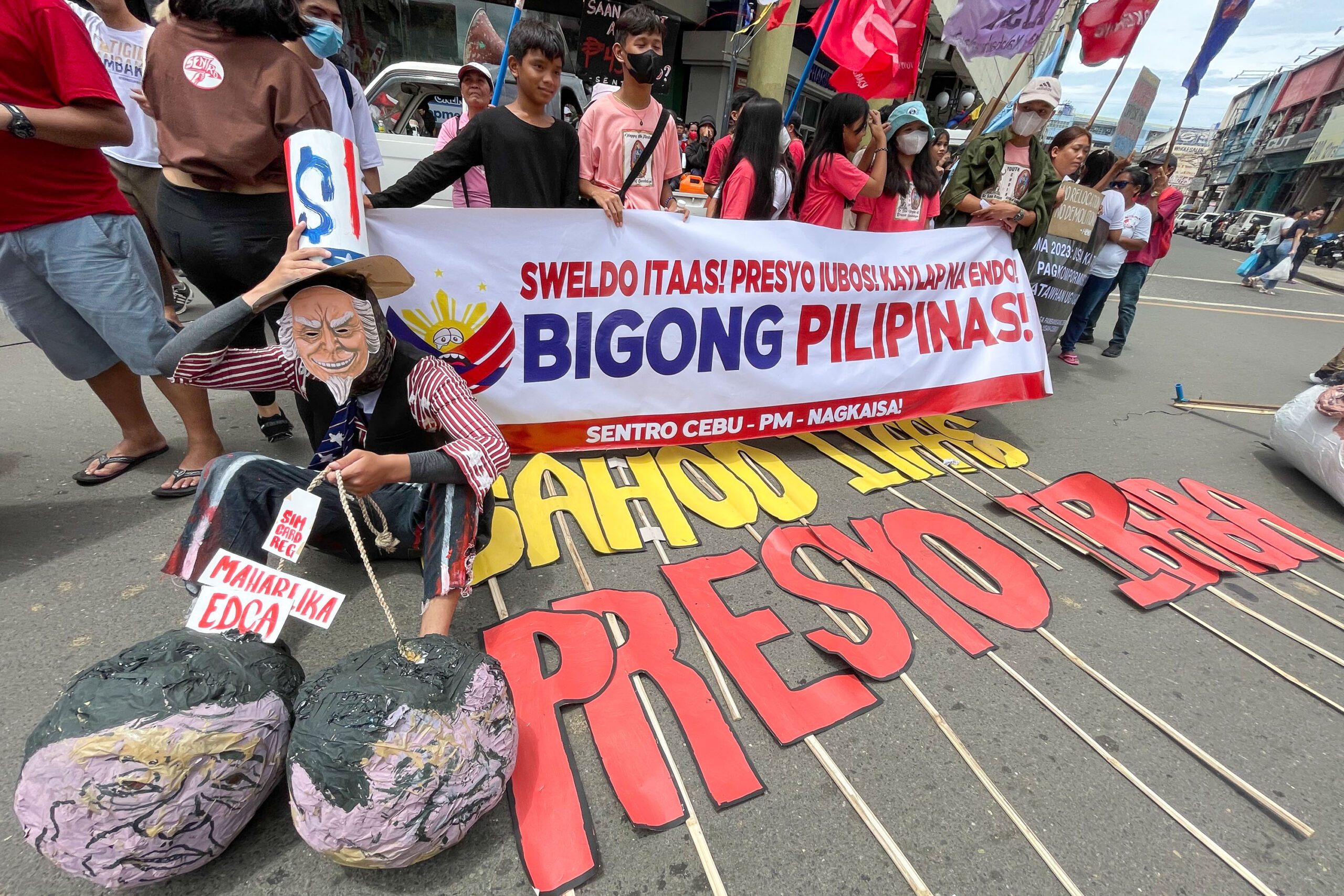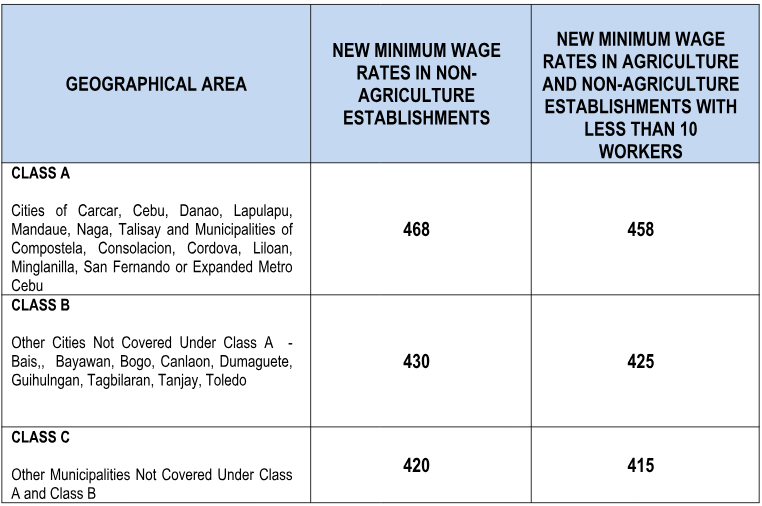SUMMARY
This is AI generated summarization, which may have errors. For context, always refer to the full article.

CEBU, Philippines – The Regional Tripartite Wages and Productivity Board in Central Visayas (RTWPB VII) announced on Wednesday, September 13, that a uniform increase of P33 for all minimum wage earners in private establishments in the region has been granted.
Pursuant to the Omnibus Rules on Minimum Wage Determination, the agency submitted the wage order to the National Wages and Productivity Commission (NWPC) on September 6.
The NWPC affirmed the wage order on September 12. The said order will take effect on October 1 or 15 days after being published in a newspaper of general circulation on September 15.
The previously set daily minimum wage in Central Visayas was P435 for non-agricultural workers and P425 for agricultural workers in Class A cities such as Cebu City, Lapu-Lapu City, and Mandaue City.
The new daily minimum wage for Class A cities in the region is P468 for non-agricultural workers and P458 for agricultural workers.
For Class B or cities not covered under Class A, the daily minimum wage is P430 for non-agricultural workers and P425 for agricultural workers.
In Class C or municipalities not covered under Class A and B, the minimum wage is P420 for non-agricultural workers and P415 for agricultural workers.

The Central Visayas wage board said in a press release sent to Rappler that the increase would benefit about 346, 946 minimum wage earners and that 399, 572 workers earning above minimum wage may “indirectly benefit” from the increase.
They explained that upward adjustments are expected to be made for workers at the enterprise level due to the corrections of the wage distortion.
Still not enough
The Partido Manggagawa (PM) and Sentro ng mga Nagkakaisa at Progresibong Manggagawa (SENTRO) said in a press release sent to Rappler that the P33 wage increase failed to meet the principal demands for wage recovery and the living wage of the petitioners in the region which amount to P100 per day.
“Di ni kapalit bisag usa ka kilo ng bugas matag adlaw. Dili ni kabawi sa nagpadayon nga pag us-os sa balor sa among sweldo sa rehiyon,” PM Cebu spokesman Dennis Derige said.
(This can’t even buy even just one kilo of rice per day. This won’t compensate for the ongoing decline of the value of our wages in the region.)
To recall, on April 27, labor groups converged at the Central Visayas office of the Department of Labor and Employment (DOLE) to file a petition for a P100 wage hike.
At the time, Teody Navea, chairperson of Bukluran ng Manggagawang Pilipino (BMP) in Cebu told Rappler that the petitioned hike would only be a temporary solution to the decreasing value of wages for workers in the region, as their original calls have always been for a P750 daily minimum wage.
Lawmakers from the Makabayan bloc filed House Bill 7568 on March 13 in order to establish a national wage of P750 for all workers in the private sector.
In 2022, labor leaders called the Metro Manila and Western Visayas wage board’s approval of a P33-wage increase “a pittance and woefully inadequate”.
Calculating the hike
According to the RTWPB VII, the increase resulted from 3 petitions that were filed before their office. The same petitions cited the increasing cost of basic goods and commodities as a basis for the wage hike.
The Central Visayas wage board added that in determining the exact amount of the increase, they considered the wage determination criteria provided under Republic Act 6727 or the Wage Rationalization Act and held a series of public hearings.
The hearings were held in Cebu on July 26 and August 1, in Bohol on August 10, and in Dumaguete on August 11.
The deliberations for the wage increase were then conducted on August 29, September 2 and September 5. –Rappler.com
Add a comment
How does this make you feel?










There are no comments yet. Add your comment to start the conversation.